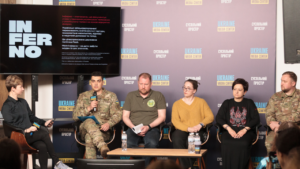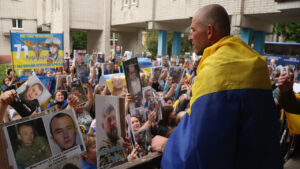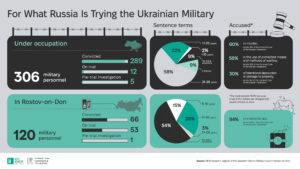Ukrainian Captives Forced to Sing the Russian Anthem and Apologize to Russians
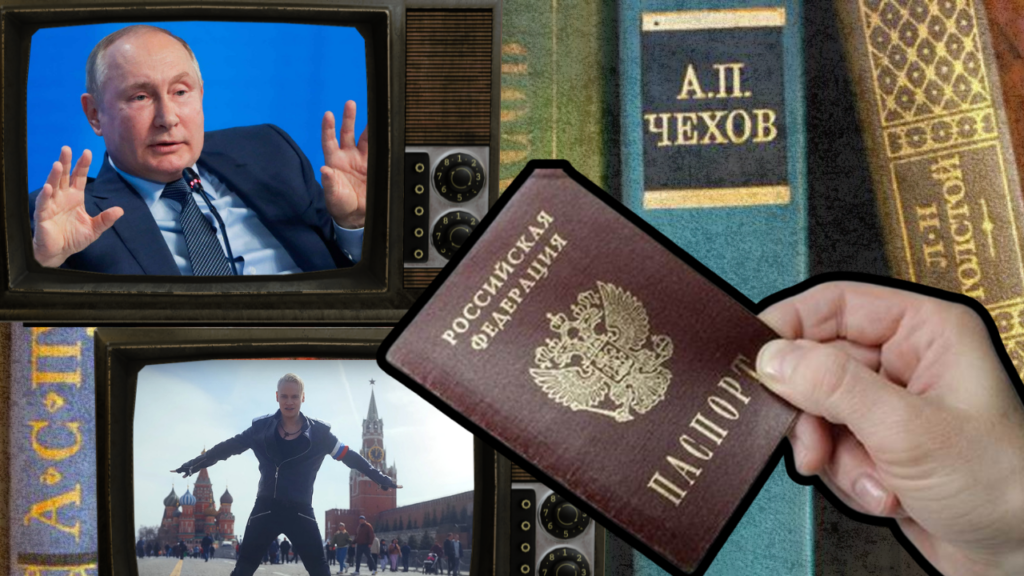
Russia is attempting to break the spirit of captured Ukrainians and force them to obtain Russian citizenship. They are offered good jobs, new housing, and promises to bring their families from Ukraine. Those who refuse exchange and accept Russian citizenship are recruited into the Bohdan Khmelnytskyi Battalion to fight against Ukraine.
When Serhii was captured in May 2022, he did not expect that twenty-year-old Russian soldiers would tell him, a 50-year-old man, about how amazing the Soviet Union was and how they dreamed of returning to those times:
— There were two of them. I was wounded and asked them to apply a tourniquet. One of them started bandaging me and asked, “Why did you go to fight?” I explained, “Chernihiv was attacked, and that’s my hometown.” In response, I heard, “We used to go there.”
Serhii serves in the 58th Separate Motorized Infantry Brigade. He was captured by the Russians near the Siverskyi Donets River. His entire group was killed during the battle—he was the only one to survive.
— “We are brothers,” that soldier told me. He looked Asian and explained he was from Tuva. When I mentioned that Tuva was the last to join the Soviet Union, he was surprised I knew that. After that, his gaze wasn’t as hostile. I don’t know if those words saved me, — the former prisoner recalls.
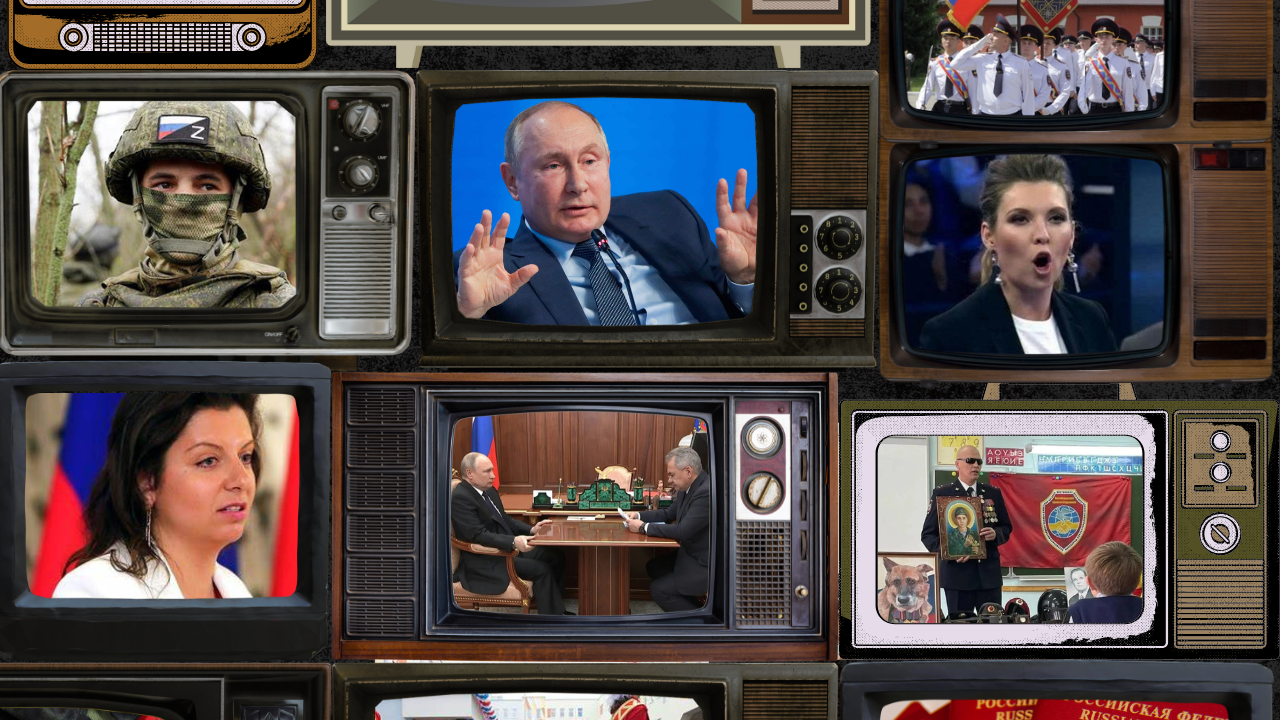
“We are brothers” is a standard narrative of Russian propaganda. Collage: MIHR
Two months earlier, another soldier from the 58th Brigade, Maksym, was captured in the Chernihiv region. Wounded, he was brought to a village near the place of capture and thrown into a barn. There were several other Ukrainians there—both soldiers and civilians. They were all stripped and searched for fascist tattoos. The Russian soldiers would beat them all mercilessly, ignoring their severe wounds.
— They enjoyed tormenting us. To them, we were “fascists” because we separated from Russia, — Maksym recounts. — Their commanders had promised that Ukrainians would welcome Russian troops with St. George ribbons and flowers. Instead, they encountered resistance in every village.
Singing until the Voice is Lost
Under the Geneva Conventions, prisoners of war must be held in specially designated camps. However, in Russia, they were merely placed in prisons and penal colonies, where they were subjected to inhumane conditions and forced to learn and perform Russian poems and songs.
Almost every Ukrainian prisoner of war knows the poem that begins with the words “Forgive us, dear Russians.” Its author, Iryna Samarina from Poltava, fled to Russia, claiming “she was placed on Bandera supporters’ blacklist.” Ukrainian prisoners are forced to recite Samarina’s poem endlessly, sing the Russian anthem, and perform dozens of other Russian songs with pseudo-patriotic overtones.
—When I recall that poem, I think, “May God have mercy,”—Yevhen, a soldier of the 95th Separate Airborne Assault Brigade, who was captured in late February 2022, recounts.—The Russian anthem and the song “Katiusha” lyrics hung on the wall in our cell. We had to sing them several times a day. There was no room for failure; otherwise, the guards would burst into the cell and beat us.
Regardless of the place of detention, whether it’s the Kursk pre-trial detention center or a colony in Mordovia, the repertoire is the same—propaganda songs from WWII, soundtracks to Russian films and TV series about soldiers once popular in Ukraine, and contemporary songs like “I’m Russian” by Yaroslav Dronov (the pseudonym SHAMAN).
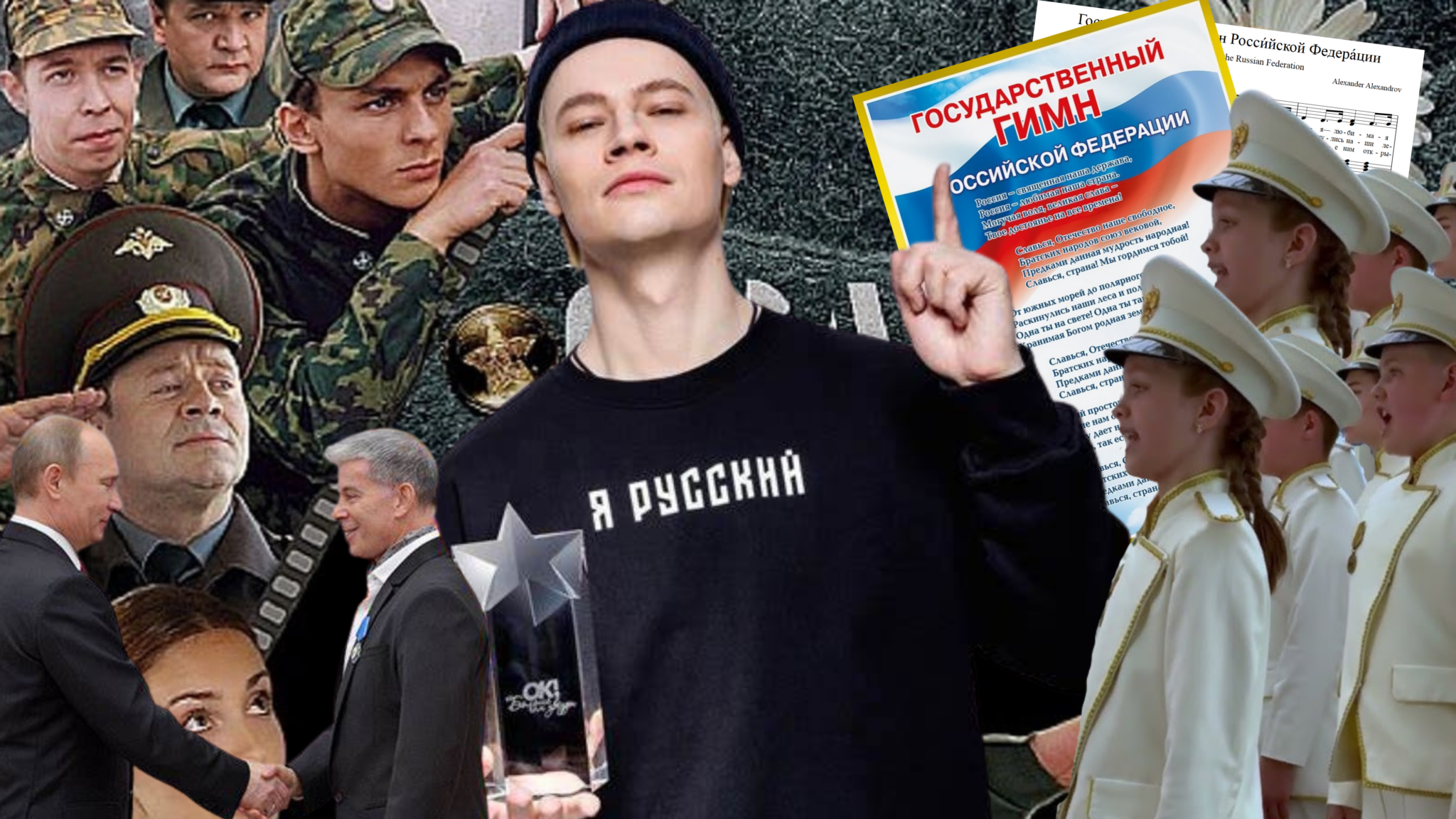
Illustrative photo. Collage: MIHR
—We would wake up to the sound of the Russian anthem. It was psychological abuse,—Anastasiia, a Mariupol defender whose name has been changed for security reasons, recalls. The girl spent seven months in captivity.
In some cells, the Russians installed speakers that played Russian music around the clock. Former prisoners of war admit it drove them crazy.
—We were also forced to stand and sing for several hours straight.—Andrii, a border guard from Mariupol who remained in captivity from May 2022 to September 2024, recollects.
Former prisoners admit that they had to sing so loudly that by the end of the day, they would lose their voices. In some colonies, prisoners were taken outside, lined up in rows, and forced to march while singing “Katiusha.”
In addition, prisoners are forced to learn the meaning of the Russian coat of arms and the flag colors.
—The Kursk pre-trial detention center has a large hall with busts of Stalin and Zhukov and portraits of WWII veterans on the walls. Once, a guard brought me to one of the portraits and asked, “Do you know who this is?” I did, and I even named the woman in the portrait. But the guard had a different opinion, “Are you stupid? That’s not a woman!” — Oleksii, a soldier of the 21st Separate Rifle Battalion who was held captive for nine months, describes.—In other words, they forced us to learn a history they did not know themselves.
In addition to songs and poems, captives were forced to read books, sometimes aloud, and then retell them. The books included works by Russian classics, books about World War II and the Soviet Union, and historical books imbued with propaganda. In some colonies, prisoners were shown TV programs approved by Russian censorship.
—I think they try to beat patriotism out of us with such methods,—Andrii assumes.
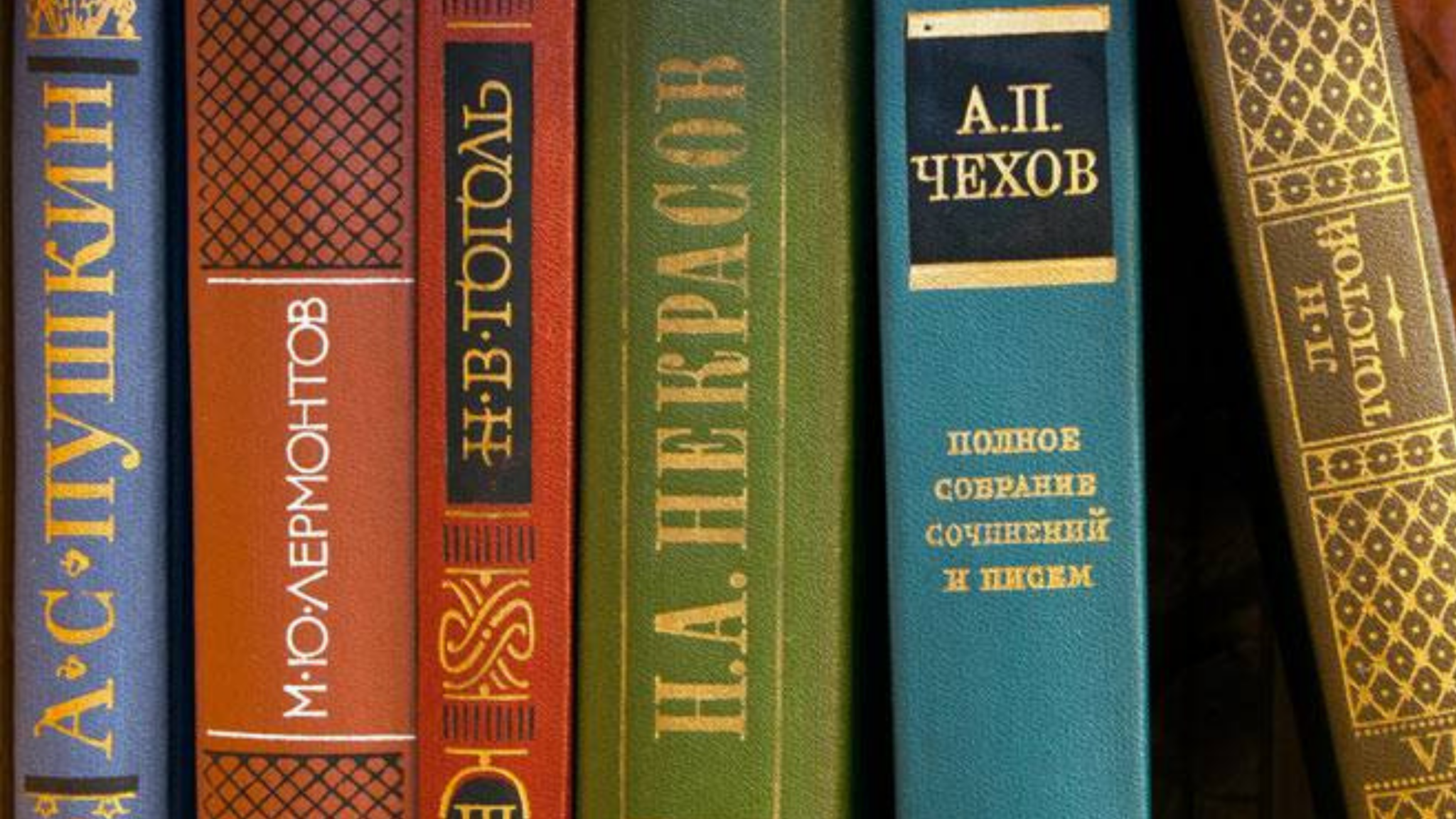
Books of Russian classics. Illustrative photo
Ironclad Arguments
During interrogations, many prisoners are convinced that they are cold-blooded killers. This was the case with Anastasiia:
— You are shelling Donbas. You are killing innocent people, — the investigator told Anastasiia. He showed her a video of “good Russians” saving Ukrainians.
— And you aren’t shelling them? — She would ask.
— Shall I show you the Alley of Angels?
The “Alley of Angels” is a memorial complex established in Donetsk in 2015 to honor children who died during the war. The Russians manipulate by claiming that Ukraine is accountable for their deaths.
— Then I asked, “How do you know these children died specifically from Ukrainian missiles? Did you see ‘Ukraine’ written on those missiles?” The investigator had no answer to that. They just started beating me. Their arguments were a baton and an electric shocker.
Anastasiia heard, “Well, she can’t be saved. Let her go back to her cell,” after one of those conversations.
Another former prisoner, Yevhen, recalls that priests from Voronezh came to the correctional colony in Borisoglebsk one day. The prisoners were lined up in the corridor.
—And then they would begin the propaganda—“In Soviet times, life was so good, we were one big family.” They told us how they were raising money to buy milk for the mothers of Donbas to feed their children.—Yevhen recounts.—They kept saying that everything happening was due to the poor leadership in our country and that we just needed to be re-educated.
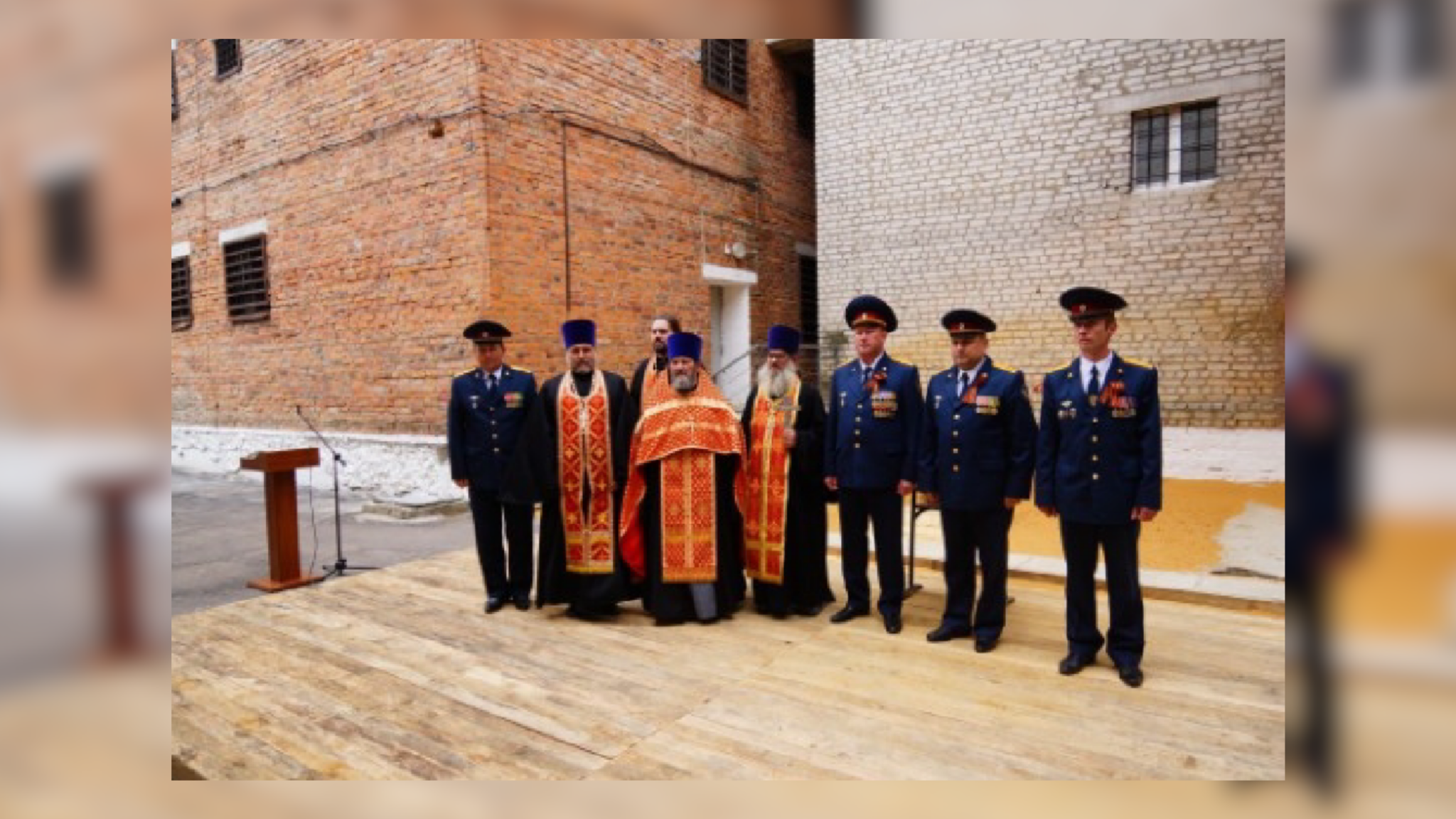
Russian priests in one of the colonies in the Russian Federation. Illustrative photo
After that, the priests held individual conversations with the prisoners. They asked about the circumstances of their capture and tried to persuade them to accept Russian citizenship. They claimed that Ukrainians were the ones who should take the first steps toward reconciliation so that both countries could once again live as “one big friendly family.”
Borys, a soldier of the 92nd Separate Mechanized Brigade, was held captive from March 2022 to January 2024. He recounts how the administration of Colony No. 10 in Mordovia spent a month convincing prisoners to obtain Russian citizenship and encouraging them to join battalions specially designed for Ukrainians in the Russian army.
—If you refused to accept a Russian passport, they would beat you. If you refused to serve in Russia, they would beat you again.—Borys recalls. They would take us out into the corridor by one and ask us questions. If we refused, they would beat us and take the next ones out. And this happened to everyone in all 37 cells.
Exhausted by starvation, constant physical and psychological abuse, and living in entire information isolation, some prisoners agreed to accept Russian citizenship. However, witnesses interviewed by the MIHR noted that the detention conditions for those people hardly changed. They were only transferred to a separate cell and given some more food.
—Many of those who agreed to this offer did so only because all their families remained in the occupation and could not leave.—Former prisoners admit.
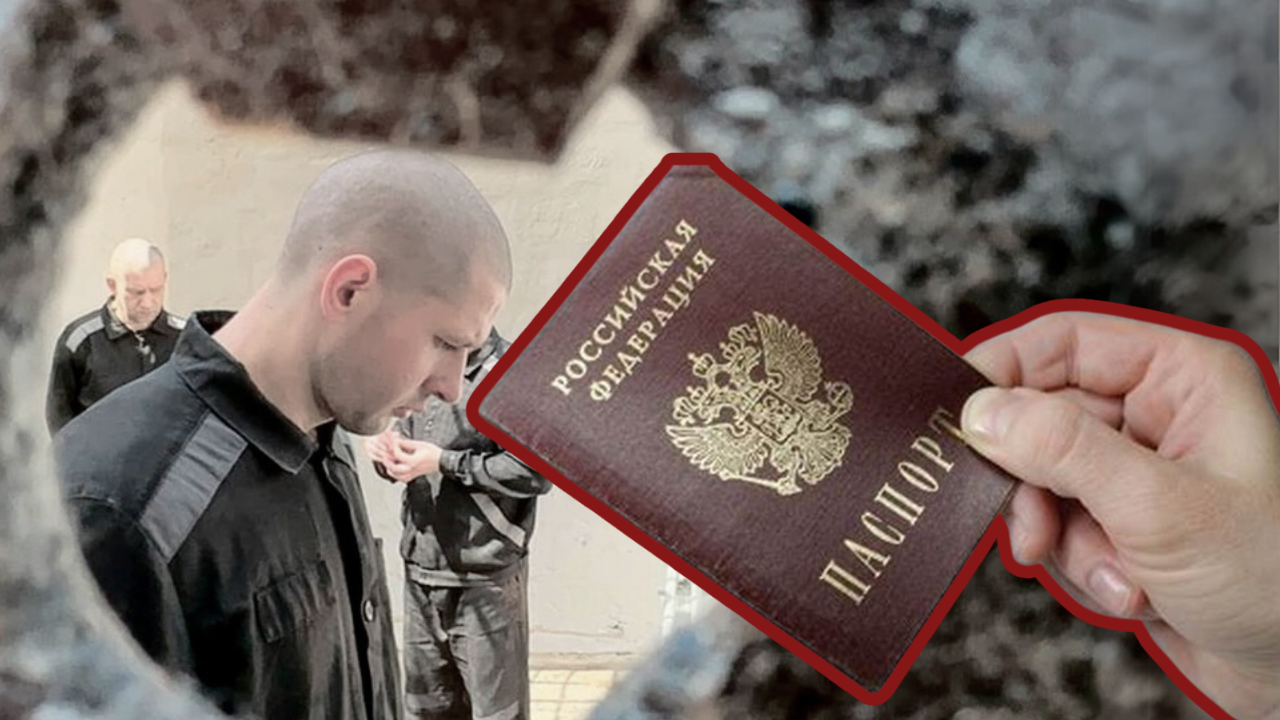
Illustrative photo. Collage: MIHR.
Sabotage in Exchange for a Husband
The Russians are trying to pressure not only the prisoners but also their families into cooperation. Such a story happened to Svitlana, the wife of a marine who was held captive from the spring of 2022 until the fall of 2024.
One day, she received a call from an unknown Ukrainian number. The woman answered and immediately realized she was speaking with a Russian—the man’s accent revealed him. He introduced himself as Dmytro and confidently stated he could help return her husband. There was just one catch: the service had to be paid for. However, the payment wasn’t in money but in a favor.
—He provided me with only general information about my husband. He promised that if I did what he asked, he would help me communicate with my husband, allow me to send him parcels, and might even get him exchanged quickly. He explained that we would communicate via Telegram for security reasons, — Svetlana recalls. — The man offered me a few options: to set fire to a car belonging to a military person or to burn down the nearest military facility.
The woman quickly realized that the man was a Russian agent. She remembered the advice from the Coordination Headquarters on the Treatment of Prisoners of War and how to act in such situations. She recorded the conversation, took screenshots of their Telegram chat, and passed everything on to the relevant authorities. The woman told Dmytro that she lived in a small village, knew nothing about the military personnel, and had no military facilities nearby. He then suggested she surrender air defense positions. The woman again replied that there were none nearby but decided to stall for time, telling him she lived near the railroad:
—He explained in detail how to make a Molotov cocktail, how to cover my tracks, and what to do to avoid being traced.
For several days, Svitlana came up with reasons why she needed time to prepare. Meanwhile, Dmytro kept calling and texting, insisting that the sooner she arranged sabotage on the railroad, the sooner she would see her husband.
—I asked him to confirm that I would actually be able to talk to my husband. But I was told I had to earn it by fulfilling my part of the deal first, and only then would he fulfill his.—Svitlana recalls.
Eventually, the SSU tracked the man and determined he was in Russia. When the woman refused to comply with Dmytro’s demands, he started making threats against her.
—He texted threatening messages and immediately deleted them. He said that now I would be the only one to blame for whatever would happen to my husband, that I might not see him alive again. I realized that this person had nothing to do with the exchanges. However, I still felt doubtful and guilty.—Svitlana admits.
Her husband is now free, and the Russian’s threats turned out to be a bluff.



